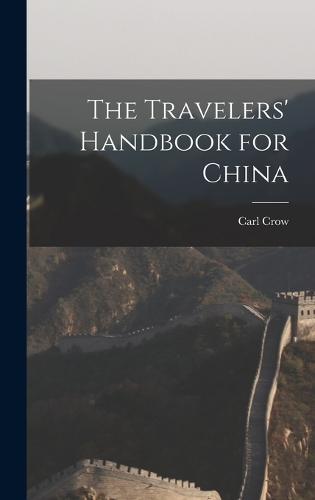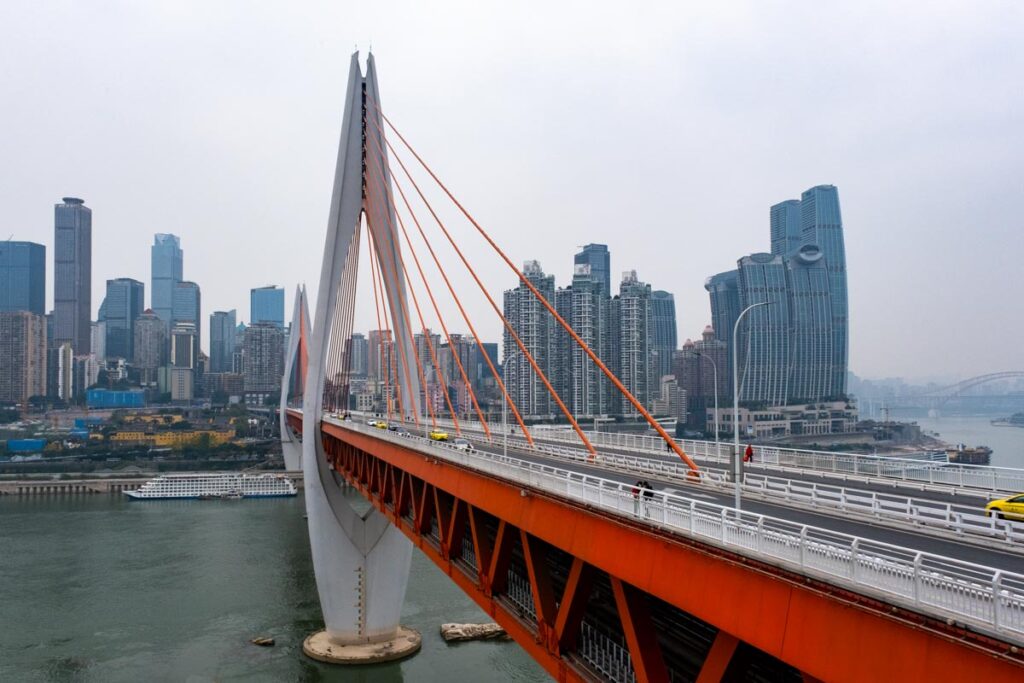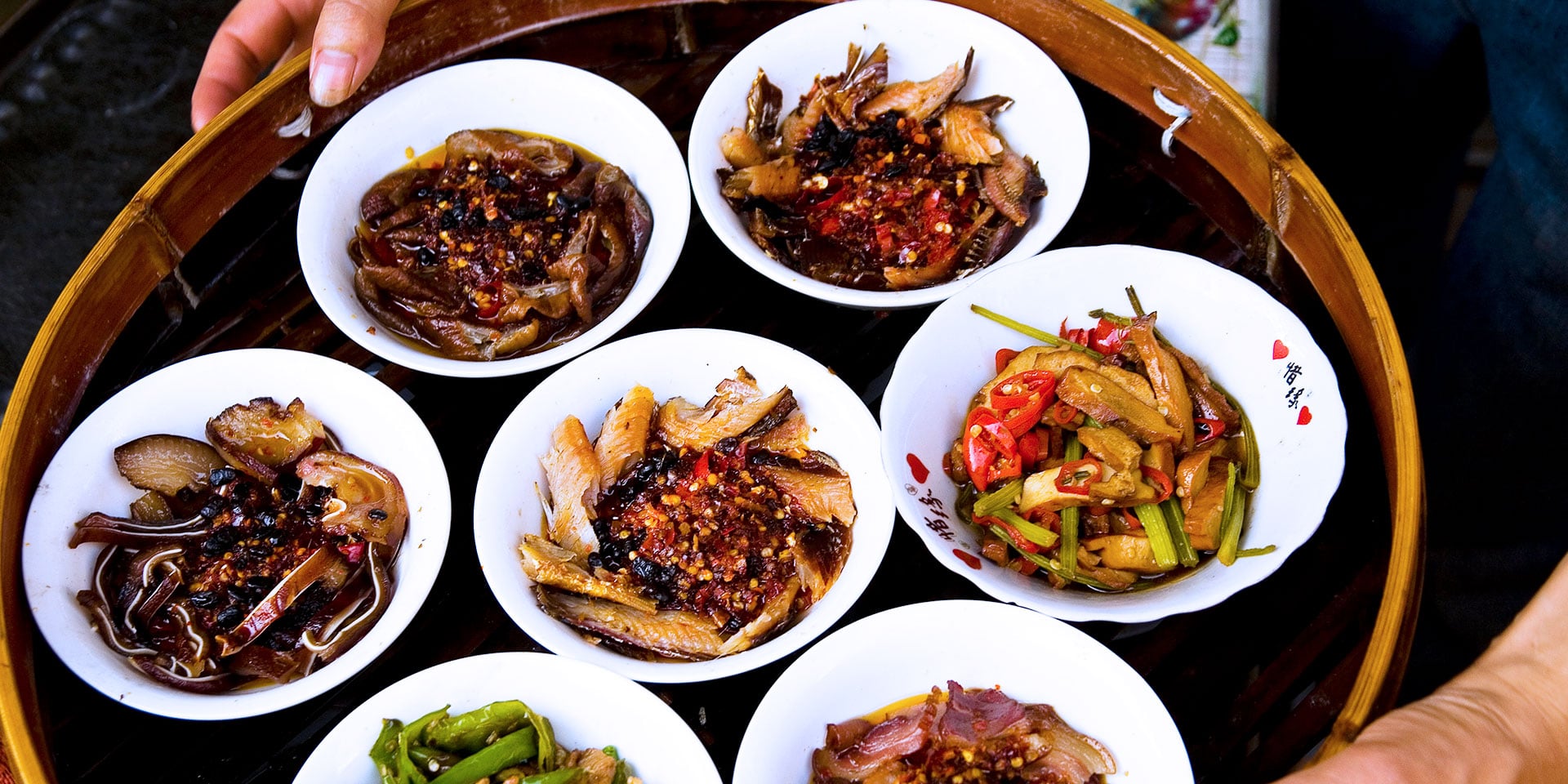Navigating China: A Canadian Traveler's Handbook

Introduction
Purpose of the Handbook
As you prepare for your exciting journey to China, it's vital to equip yourself with the necessary knowledge and tips to ensure a smooth and enriching travel experience. This comprehensive handbook is designed to serve as your go-to guide, offering invaluable insights into navigating the vibrant tapestry of Chinese culture, cuisine, transportation, safety, and more. Whether you're a first-time visitor or a seasoned traveller, this handbook aims to arm you with the essential information needed to make the most of your adventures in China.
Key Points Covered in This Handbook
- Entry Requirements for Canadian Citizens: Understand what documents you need to enter China hassle-free.
- Cultural Etiquette in China: Learn about customs and traditions to respect and tips for engaging with locals effectively.
- Navigating Transportation: Get acquainted with public transportation options and tips for hiring taxis and ride-sharing services.
- Safety and Health Tips: Stay informed about emergency contacts and health precautions to safeguard your well-being.
- Exploring Chinese Cuisine: Discover popular dishes to tantalize your taste buds and dining etiquette to enhance your culinary experience.
- Sightseeing and Attractions: Uncover must-visit destinations while being aware of tourist scams to avoid for a hassle-free exploration.
In the upcoming sections, we will delve into each of these aspects to provide you with a holistic understanding of what to expect during your travels in China. So, let's embark on this journey together and immerse ourselves in the rich tapestry of Chinese culture and experiences.

Preparations before Traveling to China
Before embarking on your journey to China, it is crucial to take care of certain essential preparations to ensure a hassle-free and enjoyable trip. As a Canadian citizen, understanding the entry requirements and having the necessary travel documents in order is paramount to a smooth entry into the country.
Entry Requirements for Canadian Citizens
- Passport Validity: Your Canadian passport should have at least six months' validity remaining beyond your intended stay in China.
- Visa Requirements: Canadian citizens typically need a visa to enter China. Depending on the purpose of your visit, ensure you have the appropriate visa type (tourist, business, etc.).
- Health Considerations: Be aware of any health requirements or vaccinations needed for entry into China.
Essential Travel Documents to Bring
- Passport: Carry your valid Canadian passport with you at all times.
- Visa: Make sure to have the necessary visa for entry into China before your departure.
- Travel Insurance: It is recommended to have travel insurance that covers medical expenses, trip cancellations, and other unforeseen events.
- Itinerary: Prepare a detailed itinerary of your travel plans, including accommodation bookings and contact information.
- Emergency Contact Information: Have a list of emergency contacts, including the nearest Canadian embassy or consulate in China.
By ensuring that you have met all entry requirements and have the essential travel documents with you, you can set off on your journey to China with confidence and peace of mind. Stay organized, stay informed, and get ready to immerse yourself in the wonders that China has to offer.

Cultural Etiquette in China
Immersing yourself in the rich tapestry of Chinese culture involves understanding and respecting the customs, traditions, and social norms that shape interactions in this diverse country. By familiarizing yourself with the common customs and gaining insights into effective ways to engage with locals, you can forge meaningful connections and enhance your cultural experiences during your stay in China.
Common Customs and Traditions
- Respect for Elders: In Chinese culture, showing respect to elders is highly valued. Use respectful language and gestures when interacting with older individuals.
- Gift-Giving: Offering gifts is a common practice in China. Gifts are typically exchanged during festivals, holidays, and special occasions as a symbol of goodwill and respect.
- Table Manners: When dining in China, be mindful of table manners, such as not sticking chopsticks upright in a bowl of rice, as this is considered rude.
- Avoiding Direct Confrontation: Chinese communication often emphasizes indirectness and harmony. Avoiding direct confrontation and maintaining a polite demeanour are crucial in social interactions.
Tips for Interacting with Locals
- Learn Basic Mandarin Phrases: While many Chinese people speak English, learning some basic Mandarin phrases can go a long way in enhancing your interactions and showing respect for the local language.
- Be Polite and Patient: Courtesy and patience are highly regarded in Chinese culture. Approach interactions with a polite and patient attitude to foster positive connections.
- Respect Personal Space: Chinese people may have different expectations regarding personal space. Be mindful of personal boundaries and respect others' personal space.
- Avoid Controversial Topics: Steer clear of sensitive topics such as politics or religion in conversations to maintain a harmonious atmosphere.
By embracing the cultural etiquette of China and adopting these tips for interacting with locals, you can navigate social situations with grace and appreciation, fostering enriching experiences and meaningful connections along your journey in this captivating country.

Navigating Transportation in China
Efficient and reliable transportation is essential for exploring the diverse landscapes and vibrant cities of China. Understanding the options available for public transportation and knowing how to navigate taxis and ride-sharing services can greatly enhance your travel experience in this vast and dynamic country.
Overview of Public Transportation
- Metro Systems: Major cities in China, such as Beijing, Shanghai, and Guangzhou, boast extensive metro systems that provide a convenient and affordable way to travel within the urban areas.
- Buses: Bus networks are widespread across China, offering a budget-friendly means of transportation to reach various destinations within cities and between regions.
- High-Speed Trains: China's high-speed rail network is among the most advanced in the world, providing fast and efficient connectivity between major cities.
Hiring Taxis and Ride-sharing Services
- Taxis: Taxis are readily available in urban areas and can be hailed on the street or booked through mobile apps. Ensure that the taxi meter is used, or negotiate a fare before starting your journey.
- Ride-sharing Services: Companies like DiDi Chuxing offer convenient ride-sharing services similar to Uber, allowing you to book rides through mobile apps. Make sure to verify the driver and the vehicle before getting in.
- Top-Up Transportation Cards: In cities with metro systems, consider purchasing a transportation card that can be used across various modes of public transportation for a seamless travel experience.
- Language Barrier: Be prepared for potential language barriers when using public transportation. Addresses should be written in Chinese characters, or translation apps should be used to communicate with drivers if needed.
By familiarizing yourself with the public transportation options available and understanding how to effectively utilize taxis and ride-sharing services, you can navigate the bustling streets and expansive landscapes of China with ease, maximizing your time to explore and discover the beauty of this captivating destination.

Safety and Health Tips for Travelers in China
Prioritizing your safety and well-being while travelling to China is paramount to enjoying a worry-free and fulfilling experience. By familiarizing yourself with emergency contact information and understanding health precautions to consider, you can ensure a smooth and secure journey through this captivating country.
Emergency Contact Information
- Emergency Services: In case of emergencies, dial 110 for police assistance, 120 for medical emergencies, and 119 for the fire department in China.
- Canadian Embassy: Keep the contact information of the nearest Canadian embassy or consulate in China handy for assistance with passport issues, emergencies, or other consular services.
- Travel Insurance: Before your trip, ensure you have comprehensive travel insurance that covers medical expenses, emergency evacuation, and repatriation.
- Medical Facilities: Research the locations of reputable hospitals and clinics in the areas you plan to visit in case of medical emergencies.
Health Precautions to Consider
- Vaccinations: Consult with your healthcare provider to ensure you are up to date on routine vaccinations and consider additional vaccinations recommended for travel to China.
- Food and Water Safety: Exercise caution with street food and ensure that water is from a safe source, or opt for bottled water to prevent gastrointestinal issues.
- Air Pollution: Be aware of potential air pollution in major cities and consider bringing a face mask or respiratory protection if you are sensitive to poor air quality.
- Travel Health Kit: Pack a travel health kit with essential medications, insect repellent, sunscreen, and other items to address minor health issues during your trip.
By proactively preparing for emergencies, staying informed about health precautions, and taking necessary safety measures, you can focus on savouring the sights, sounds, and flavours of China while prioritizing your well-being throughout your travels in this captivating destination.

Exploring Chinese Cuisine
One of the highlights of visiting China is undoubtedly the opportunity to indulge in its rich and diverse culinary landscape. From savouring traditional delicacies to navigating dining etiquette and ensuring food safety, exploring Chinese cuisine is a delightful journey for the senses that promises to tantalize your taste buds and leave you craving for more.
Popular Dishes to Try
- Peking Duck: A quintessential Beijing dish, Peking Duck is known for its crispy skin and succulent meat, often served with pancakes, cucumbers, and hoisin sauce.
- Hot Pot: A communal dining experience, Hot Pot involves cooking a variety of fresh ingredients in a simmering broth at the table, offering a customizable and interactive meal.
- Xiaolongbao: These steamed soup dumplings from Shanghai are filled with savoury broth and meat, creating a burst of flavor in each bite.
- Dumplings: Whether steamed, boiled, or pan-fried, dumplings come in a variety of fillings and shapes, making them a versatile and popular choice across China.
- Mapo Tofu: Hailing from Sichuan province, Mapo Tofu features cubes of tofu cooked in a spicy and flavorful sauce, embodying the bold and complex flavours of Sichuan cuisine.
Dining Etiquette and Food Safety
- Chopstick Etiquette: When dining in China, mastering basic chopstick etiquette, such as not sticking chopsticks upright in a bowl of rice, showcases respect for the culture.
- Sharing Food: Sharing dishes is common in Chinese dining culture, so be prepared to partake in communal dining experiences and sample a variety of flavours.
- Food Safety: To ensure food safety, opt for eateries with a high turnover of customers, avoid consuming raw or undercooked foods, and drink bottled or boiled water to prevent water-borne illnesses.
- Street Food Caution: While street food offers a glimpse into local flavours, exercise caution with hygiene standards and opt for vendors with clean and well-maintained stalls.
By immersing yourself in the culinary delights of China, embracing dining etiquette, and prioritizing food safety, you can embark on a flavorful journey that not only nourishes your body but also nourishes your soul with the tastes and traditions of this gastronomic wonderland.

Sightseeing and Attractions in China
China's vast landscapes, historic sites, and vibrant cities offer a plethora of attractions that captivate and inspire travellers from around the globe. From iconic landmarks to hidden gems, exploring the must-visit destinations while staying vigilant against tourist scams ensures a fulfilling and enriching travel experience in this culturally rich country.
Must-Visit Destinations
- The Great Wall of China: A UNESCO World Heritage Site, the Great Wall is a symbol of China's rich history and offers breathtaking views of the surrounding countryside.
- The Forbidden City: Located in Beijing, this imperial palace served as the home of Chinese emperors for centuries and showcased stunning architecture and cultural artefacts.
- The Terracotta Army: Discovered in Xi'an, this archaeological site features thousands of life-sized terracotta warrior statues crafted to protect Emperor Qin Shi Huang in the afterlife.
- The Li River: A cruise along the picturesque Li River in Guilin reveals stunning karst landscapes, serene waterways, and traditional villages, offering a glimpse into rural China's beauty.
Tourist Scams to Avoid
- Tea House Scams: Be wary of invitations to tea houses by friendly locals, as these establishments may overcharge or employ high-pressure sales tactics.
- Counterfeit Goods: Exercise caution when purchasing souvenirs or branded goods, as counterfeit items are prevalent in tourist areas.
- Fake tickets and Tour Operators: Verify the authenticity of tickets and tour operators to popular attractions to avoid falling victim to scams that sell counterfeit or invalid entry passes.
- Pickpocketing and Distraction Theft: Stay vigilant in crowded tourist spots and transportation hubs to prevent theft and keep valuables secure and within sight at all times.
By prioritizing visits to iconic landmarks and being mindful of common tourist scams, you can make the most of your sightseeing adventures in China while safeguarding your travel experiences from potential pitfalls. Stay informed, stay vigilant, and get ready to marvel at the wonders that await you in this extraordinary country.
Conclusion
Summary of Key Points
As you prepare to embark on your journey to China, equipping yourself with the knowledge and insights provided in this handbook will not only enhance your travel experience but also ensure a smooth and enjoyable adventure through the enchanting landscapes, rich history, and vibrant culture of this captivating country. Let's recap the key points highlighted in this comprehensive guide:
Key Points Recap
- Entry Requirements and Travel Documents: Ensure you have the necessary entry requirements and essential travel documents, such as a valid passport and visa, to smoothly enter and navigate China.
- Cultural Etiquette: Familiarize yourself with common customs, traditions, and tips for interacting with locals to foster positive connections and immersive cultural experiences.
- Transportation Tips: Understand the overview of public transportation options, including metro systems and taxis, to efficiently explore the cities and regions of China.
- Safety and Health Precautions: Prioritize emergency contact information and health precautions to safeguard your well-being and address potential risks during your travels.
- Culinary Exploration: Indulge in popular Chinese dishes, navigate dining etiquette, and prioritize food safety to savour the flavours and delights of Chinese cuisine.
- Sightseeing and Attractions: Explore must-visit destinations, such as the Great Wall and the Terracotta Army, while being vigilant against common tourist scams to fully enjoy your sightseeing experiences.
In conclusion, by arming yourself with this wealth of information and guidance, you are poised to embark on a memorable and enriching journey through China, where every moment presents an opportunity to immerse yourself in the wonders of this diverse and captivating destination.
Embrace the adventures, savour the flavours, marvel at the sights, and cherish the experiences that await you in the extraordinary tapestry of China. Safe travels, and may your Chinese odyssey be filled with unforgettable memories and endless discoveries!
